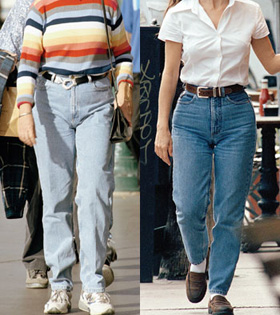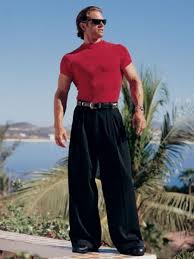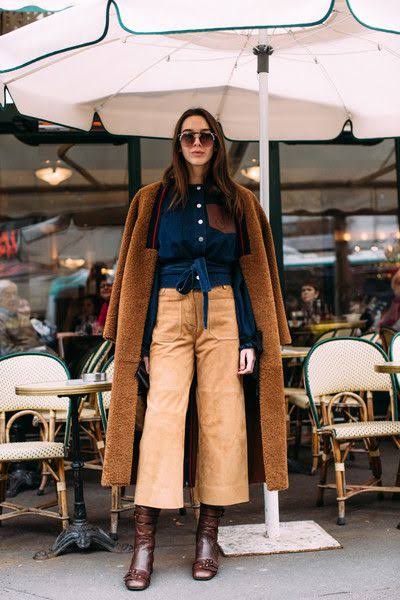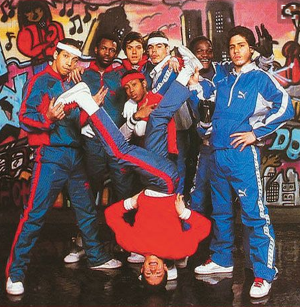Back to the Future, Fashion!
- snapmag

- Apr 21, 2019
- 3 min read
Updated: Apr 24, 2019
Story by Angela Mari Torres
“Fashions fade, style is eternal.” – Yves Saint Laurent
Fashion trends have come and go, but 2019 has been a big fashion throwback. All things fash from the 70’s to the 90’s have found their way back to the streets, despite current trend booms.
“Oh, are those back?” my mom once asked me when she saw me in loose denim pants and a cropped shirt. “Are what back?” I thought.
Of course, despite the fact that trends are making a comeback, fashion would not be fashion if it didn’t go with the times. To give you a better understanding of my mother’s sentiments, the emergence of the trends in contrast to their modern-day versions below should do the trick!
Dungarees
The dungaree was said to have made its debut in the 17th century in India as working clothes called ‘Dungri.’ When the English bought the cloth, they added a twist to the name, thus naming the fabric ‘dungaree.’ In the 1850s, Levi Strauss and Jacob Davis designed the first overalls made out of dungaree fabric, having the bib and trousers come together. Dungarees - called ‘overalls’ now - began as standard clothing for working men. This transcended into fashion when celebrities started using them, giving way for its popularity.
Photos retrieved from: https://www.vintag.es/2012/05/life-in-photographs-by-dorothea-lange.html?m=1 https://vintagedancer.com/1930s/vintage-denim-jeans/
Mom Jeans
Late 20th century, moms across the west were observed to have begun wearing denim jeans which were pleated and tightly belted above their waistlines, with their shirts tucked under. Basically, mom jeans are characterized as tight high-waisted jeans which are loose throughout the leg area. It wasn’t until 2013 that mom jeans were noticed to have made its way into shops and onto everyone else who wasn’t a mom.
Photos retrieved from:
Wide Leg Pants
It was recorded in 1910 that there were already a few women who wore wide leg pants, but it didn’t earn its popularity until the 20s to the mid-50s in its various forms such as the beach pajamas, culottes, sailor pants, and the like. In the 70s, wide leg pants were revived by bell bottoms.
Photos retrieved from:
http://fashiontasty.com/25-ways-to-wear-wide-leg-pants/
Denim Skirts
Denim skirts made their first appearance in the 70s, when hippies came up with the idea to recycle old denim jeans into long skirts. There were said to be tailored to look like the common pair of jeans. As time passed, skirts were made shorter and with a different design to defer from men’s jeans.
Photos retrieved from:
Tracksuits
With the said rise of ‘space-age’ technology in the 60s, the tracksuit was introduced. But, it was in the 70s that the tracksuit took its step into fashion given its feature in the disco scene. This went along with its growing popularity in athletics which pushed forward until the 80s. In the 90s, tracksuits became an icon for hip-hop. At present, the sweatpants part of the suit is more commonly used.
Photos retrieved from:
https://www.pinterest.com/pin/632333603904537308/ https://www.pinterest.com/pin/396387204686984474/
https://www.asos.com/nike/nike-exclusive-to-asos-orange-joggers/prd/9533977 http://www.upscalehype.com/tag/kappa/
Neon Clothing
In the 80s, bright colors came about in movies and TV shows as the film industry was said to be moving away from 1970s cinema of black and white tones. Neon colors moved into the world of fashion – called fluorescent at the time – from clothes to shoes to accessories.
Photos retrieved from: http://infusehumber.com/fluorescent-fever/
Crop Tops
The crop top entered the fashion scene in the 1940s, but was said to have reached its peak around the 70s and 80s. The look was first achieved by tying blouses in the front, then came the aerobics uniforms. Over the years, this item of clothing has become a staple in all its varieties.
Photos retrieved from:
At present we are living in a society that is progressing fashionably, but I guess we always find ourselves going back to the basics for personal [p]reference. Then again, is new really new? Or are we just constantly bringing back the old and repackaging it as new?




























































Comments